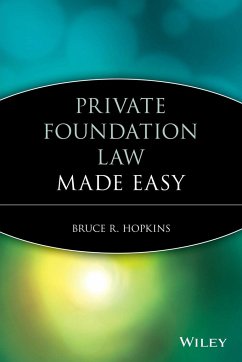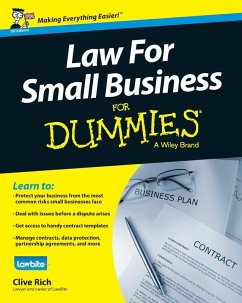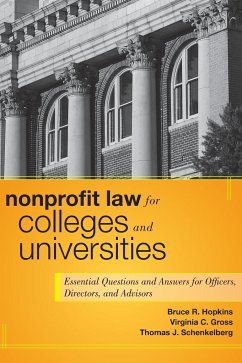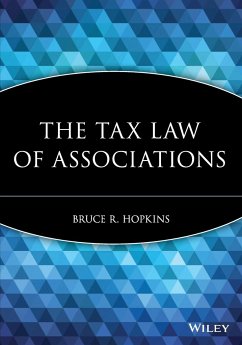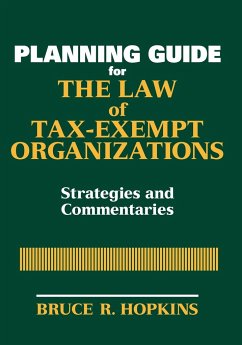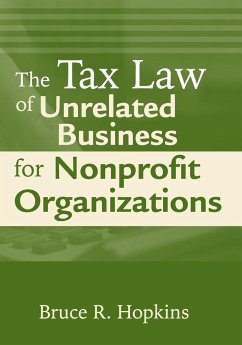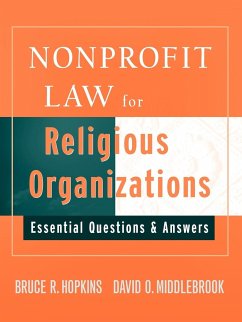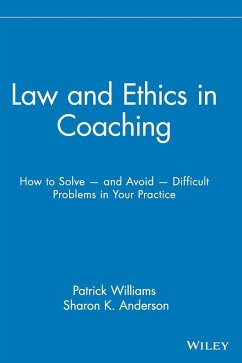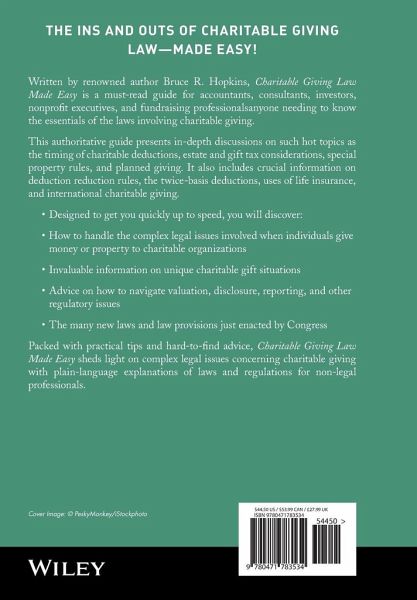
Charitable Giving Law Made Easy
Versandkostenfrei!
Versandfertig in über 4 Wochen
32,99 €
inkl. MwSt.

PAYBACK Punkte
16 °P sammeln!
THE INS AND OUTS OF CHARITABLE GIVING LAW--MADE EASY! Written by renowned author Bruce R. Hopkins, Charitable Giving Law Made Easy is a must-read guide for accountants, consultants, investors, nonprofit executives, and fundraising professionalsanyone needing to know the essentials of the laws involving charitable giving. This authoritative guide presents in-depth discussions on such hot topics as the timing of charitable deductions, estate and gift tax considerations, special property rules, and planned giving. It also includes crucial information on deduction reduction rules, the twice-basis ...
THE INS AND OUTS OF CHARITABLE GIVING LAW--MADE EASY! Written by renowned author Bruce R. Hopkins, Charitable Giving Law Made Easy is a must-read guide for accountants, consultants, investors, nonprofit executives, and fundraising professionalsanyone needing to know the essentials of the laws involving charitable giving. This authoritative guide presents in-depth discussions on such hot topics as the timing of charitable deductions, estate and gift tax considerations, special property rules, and planned giving. It also includes crucial information on deduction reduction rules, the twice-basis deductions, uses of life insurance, and international charitable giving. * Designed to get you quickly up to speed, you will discover: * How to handle the complex legal issues involved when individuals give money or property to charitable organizations * Invaluable information on unique charitable gift situations * Advice on how to navigate valuation, disclosure, reporting, and other regulatory issues * The many new laws and law provisions just enacted by Congress Packed with practical tips and hard-to-find advice, Charitable Giving Law Made Easy sheds light on complex legal issues concerning charitable giving with plain-language explanations of laws and regulations for non-legal professionals.



